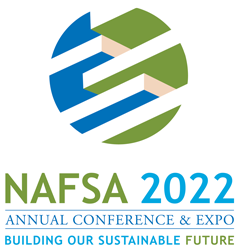Proposal Content Focus Areas (CFAs) for NAFSA 2022
Every proposal must select one Content Focus Area that relates to the submission.
Advising and Enrollment in International Education
Information, tools, and training that showcase good practice, developments in the field, research, knowledge, and the use of emerging technologies, as it applies to advising and enrollment in all areas of international education.
Advocacy
Strategies and tactics for advocating the value of international education on campus, locally and nationally within the U.S. and abroad.
Comprehensive Internationalization
Infusion and assessment of international and comparative perspectives throughout the teaching, research and service missions of higher education. Strategies and tactics for articulating the value of international education on campus.
Diversity and Inclusion
Research and applied practice on social justice, equity, civil society, and ethical practices related to diversity, inclusion, and the work of international educators.
Global Issues and Trends
Global trends that have an impact on international education, including issues in such areas as national interests, politics, economics, security, higher educational policy, society, the environment, and workforce development.
Innovations in Recruitment and Marketing
Innovations in recruitment and marketing, including digital recruitment, the use of social media, return on investment, communication strategies, branding, public relations and market trends, and data and analysis.
Management and Strategy
Management models, policies, and practice in management of an office or program in international education, or principles, methods, and leadership strategies for strategic planning and policy making in order to achieve the goals and mission of international education within an institution or organization.
Peace and Justice
Innovative and influential efforts by international educators across the globe to advance issues related to strengthening social justice and promoting peaceful international cooperation in all spheres of common human endeavor.
Professional Development
Development of skills and strategies that will help international educators achieve career goals, reach leadership potential, and find balance between personal and professional life.
Promoting Safety, Mitigating Risk, Responding to Crisis
Tools, communication processes, compliance, strategies, and planning that campuses and international offices use when faced with a crisis, health emergency (mental or physical), or safety concern in international education.
Regulatory Complexities
Guidance and information on government regulations in the United States and abroad that impact international education, employment, and exchange.
Student Preparation and Career Development
Career readiness of both international and domestic education abroad students; skill and language acquisition; development of intercultural competencies; workforce development and employability; transition to the workforce; and employer expectations.
Teaching and Learning in International Education
Development of global learning curriculum and pedagogy and its integration into teaching and learning; research, theory, and model practices that support the development of global competence across all disciplines.


